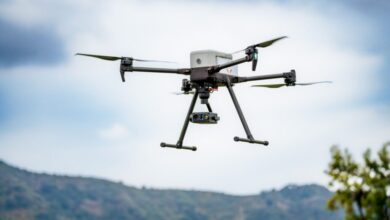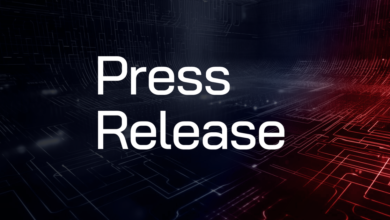How to safeguard against digital threats

Lee Enterprises newsroom and editorial were not involved in the creation of this content.
Digital technology in fleet management systems has increased the demand for robust cybersecurity measures. Cyberthreats like data breaches, vehicle hijacking, and sensor manipulation can seriously impact fleet operations, causing financial harm, operational issues, and potential safety hazards. That’s why addressing these concealed cybersecurity risks is of utmost importance, as well as prioritizing cybersecurity as an essential element of contemporary fleet management.
Learn more about the need for proactivity in cybersecurity, including weaknesses in fleet management systems and practical ways to safeguard them from online threats — guaranteeing their safety and dependability.
Importance of Proactive Cybersecurity Measures
People are also reading…
Security breaches in fleet management systems can result in the loss of critical data, financial information, and intellectual property, leading to significant economic and reputational harm. Compromised systems disrupt operations, causing delays, missed deadlines, and dissatisfied customers. And if a cyberattack occurs on fleet vehicles, it could result in accidents, injuries, or even fatalities in the most severe situations.
Securing fleet management data is crucial for maintaining smooth operations and financial stability. Here are a couple of reasons why implementing proactive cybersecurity measures within an organization is imperative:
● Protection Against Unauthorized Access
It guarantees the security of sensitive information, such as customer and financial data, by preventing unauthorized individuals from gaining access. This ensures that theft, misuse, and potentially fraudulent activities are thwarted, providing a solid defense against unauthorized access.
● Regulatory Compliance
Companies must comply with data protection laws to avoid fines and legal consequences resulting from data breaches. Adhering to these regulations ensures regulatory compliance and legal adherence.
● Operational Continuity
By implementing robust cybersecurity practices, such as regular system updates and backups, businesses can minimize the impact of cyber incidents on their operations. This helps to prevent downtime and ensures uninterrupted service delivery, allowing companies to maintain operational continuity even in the face of potential cyberthreats.
● Financial Stability and Reputation
Establishing strong data security protocols is crucial to avoiding financial losses from data breaches and protecting the company’s image. These protocols ensure client and collaborator trust, safeguard sensitive data and maintain financial health and industry standing.
Identifying Vulnerabilities in Digital Systems and Networks
To safeguard the data and operations’ security and integrity, it is essential to pinpoint vulnerabilities in fleet management systems. Routine security assessments and penetration testing uncover potential weaknesses and gaps in the organization’s cybersecurity framework. Companies can acquire valuable information on security vulnerabilities and develop successful risk management plans by performing these evaluations.
● Regular Risk Assessments
Conducting regular risk assessments is crucial to identify vulnerabilities in systems and networks. This involves evaluating the security of fleet management systems, understanding the risks involved, and prioritizing areas susceptible to cyberthreats.
● Keep Technology Up to Date
It is essential to ensure that all technology, including hardware and software, is consistently updated. Software manufacturers provide security patches to fix known vulnerabilities, so organizations should prioritize updating software to prevent the exploitation of security flaws.
Employees at all levels should be aware of best practices, the risks associated with cyberthreats, and how to prevent the accidental introduction of malware into the systems.
Another critical step is properly segregating networks. Systems operating in isolation should remain independent to prevent unnecessary connections that could introduce vulnerabilities. Segregating networks based on their functions can help minimize the risk of unauthorized access and cyberattacks.
● Implement Strong Access Controls
Controlling access to systems, software, and hardware is essential. Organizations should monitor access, grant minimal privileges to authorized personnel, and be prepared to revoke access in real time. Monitoring and managing access can help prevent insider threats and unauthorized access to critical systems and data.
● Regular Software Updates
Regular software updates are crucial for updating all hardware and software components with security patches and bug fixes. This includes maintaining IoT devices, sensors, and system terminals for fleet monitoring. Updating helps address known vulnerabilities and protect systems from cyberthreats.
Lessons Learned from High-Profile Cyberattacks
High-profile cyberattacks have greatly affected the maritime industry, exposing significant vulnerabilities in fleet management systems and other related areas. From these incidents, several vital lessons emerge, pointing to the need for improved cybersecurity measures:
● Enhanced Cybersecurity Measures
Organizations must prioritize robust cybersecurity practices, including regular security assessments, penetration testing, and timely software updates, to proactively identify and address vulnerabilities.
Educating employees on cybersecurity best practices, such as recognizing phishing attempts and the importance of strong passwords, is vital in preventing human errors that could lead to cyber breaches.
● Access Controls and Encryption
Implementing stringent access controls, employing encryption techniques, and ensuring multi-factor authentication can significantly enhance the protection of sensitive data and prevent unauthorized access.
Prioritizing Protection and Prevention
With the increasing digitization of fleet management systems, prioritizing cybersecurity measures is more crucial than ever. Implementing proactive measures is essential to protect fleet management systems from cyberthreats. By identifying weaknesses, enforcing access controls, staying updated with technology, and educating employees on cybersecurity practices, organizations can establish a robust defense against unauthorized access. This helps ensure compliance, maintain operations, and safeguard their reputation. Stressing the significance of regular risk assessments and network segregation further enhances an organization’s ability to identify and address potential cyberthreats effectively. As the digital landscape evolves, so should the methods used to secure critical fleet management infrastructure, guaranteeing that these systems remain secure, dependable, and resilient in the face of cyber challenges.
Cetaris Inc. demonstrates a proactive stance toward cybersecurity. The organization enforces a comprehensive security policy that includes data encryption during transit and at rest, penetration testing by third-party experts, and continuous scanning for risk management. Access control within Cetaris is carefully managed, with privileges granted based on specific roles, showcasing their dedication to enterprise security. Integrating mobile device management software and secure remote connections further strengthens their defense mechanisms. Noteworthy is Cetaris’s commitment to educating its workforce on security matters and conducting thorough background checks for new employees to ensure a high level of security awareness across the board. Their vendor assessment process underscores the significance of security in operational collaborations, while the pursuit of SOC 2 Type II certification reflects their unwavering commitment to upholding strong security and privacy practices.
Cetaris Inc.’s security approach is a testament to the necessity of adapting and reinforcing cybersecurity measures to safeguard the integrity of fleet management systems and the critical data they manage.



